第45章 THE REPUBLICS OF SOUTH AMERICA(5)
Next to the Tacna and Arica question, the dubious boundaries of Ecuador constituted the most serious international problem in South America. The so-called Oriente region, lying east of the Andes and claimed by Peru, Brazil, and Colombia, appeared differently on different maps, according as one claimant nation or another set forth its own case. Had all three been satisfied, nothing would have been left of Ecuador but the strip between the Andes and the Pacific coast, including the cities of Quito and Guayaquil. The Ecuadorians, therefore, were bitterly sensitive on the subject.
Protracted negotiations over the boundaries became alike tedious and listless. But the moment that the respective diplomats had agreed upon some knotty point, the Congress of one litigant or another was almost sure to reject the decision and start the controversy all over again. Even reference of the matter to the arbitral judgment of European monarchs produced, so far as Ecuador and Peru were concerned, riotous attacks upon the Peruvian legation and consulates, charges and countercharges of invasion of each other's territory, and the suspension of diplomatic relations. Though the United States, Argentina, and Brazil had interposed to ward off an armed conflict between the two republics and, in 1911, had urged that the dispute be submitted to the Hague Tribunal, nothing would induce Ecuador to comply.
Colombia was even more unfortunate than its southern neighbor, for in addition to political convulsions it suffered financial disaster and an actual deprivation of territory. Struggles among factions, official influence at the elections, dictatorships, and fighting between the departments and the national Government plunged the country, in 1899, into the worst civil war it had known for many a day. Paper money, issued in unlimited amounts and given a forced circulation, made the distress still more acute. Then came the hardest blow of all. Since 1830 Panama, as province or state, had tried many times to secede from Colombia.
In 1903 the opportunity it sought became altogether favorable.
The parent nation, just beginning to recover from the disasters of civil strife, would probably be unable to prevent a new attempt at withdrawal. The people of Panama, of course, knew how eager the United States was to acquire the region of the proposed Canal Zone, since it had failed to win it by negotiation with Colombia. Accordingly, if they were to start a "revolution," they had reason to believe that it would not lack support--or at least, connivance--from that quarter.
On the 3d of November the projected "revolution" occurred, on schedule time, and the United States recognized the independence of the "Republic of Panama" three days later! In return for a guarantee of independence, however, the United States stipulated, in the convention concluded on the 18th of November, that, besides authority to enforce sanitary regulations in the Canal Zone, it should also have the right of intervention to maintain order in the republic itself. More than once, indeed, after Panama adopted its constitution in 1904, elections threatened to become tumultuous; whereupon the United States saw to it that they passed off quietly.
Having no wish to flout their huge neighbor to the northward, the Hispanic nations at large hastened to acknowledge the independence of the new republic, despite the indignation that prevailed in press and public over what was regarded as an act of despoilment. In view of the resentful attitude of Colombia and mindful also of the opinion of many Americans that a gross injustice had been committed, the United States eventually offered terms of settlement. It agreed to express regret for the ill feeling between the two countries which had arisen out of the Panama incident, provided that such expression were made mutual;and, as a species of indemnity, it agreed to pay for canal rights to be acquired in Colombian territory and for the lease of certain islands as naval stations. But neither the terms nor the amount of the compensation proved acceptable. Instead, Colombia urged that the whole matter be referred to the judgment of the tribunal at The Hague.
Alluding to the use made of the liberties won in the struggle for emancipation from Spain by the native land of Miranda, Bolivar, and Sucre, on the part of the country which had been in the vanguard of the fight for freedom from a foreign yoke, a writer of Venezuela once declared that it had not elected legally a single President; had not put democratic ideas or institutions into practice; had lived wholly under dictatorships; had neglected public instruction; and had set up a large number of oppressive commercial monopolies, including the navigation of rivers, the coastwise trade, the pearl fisheries, and the sale of tobacco, salt, sugar, liquor, matches, explosives, butter, grease, cement, shoes, meat, and flour. Exaggerated as the indictment is and applicable also, though in less degree, to some of the other backward countries of Hispanic America, it contains unfortunately a large measure of truth. Indeed, so far as Venezuela itself is concerned, this critic might have added that every time a "restorer," "regenerator," or "liberator" succumbed there, the old craze for federalism again broke out and menaced the nation with piecemeal destruction. Obedient, furthermore, to the whims of a presidential despot, Venezuela perpetrated more outrages on foreigners and created more international friction after 1899 than any other land in Spanish America had ever done.